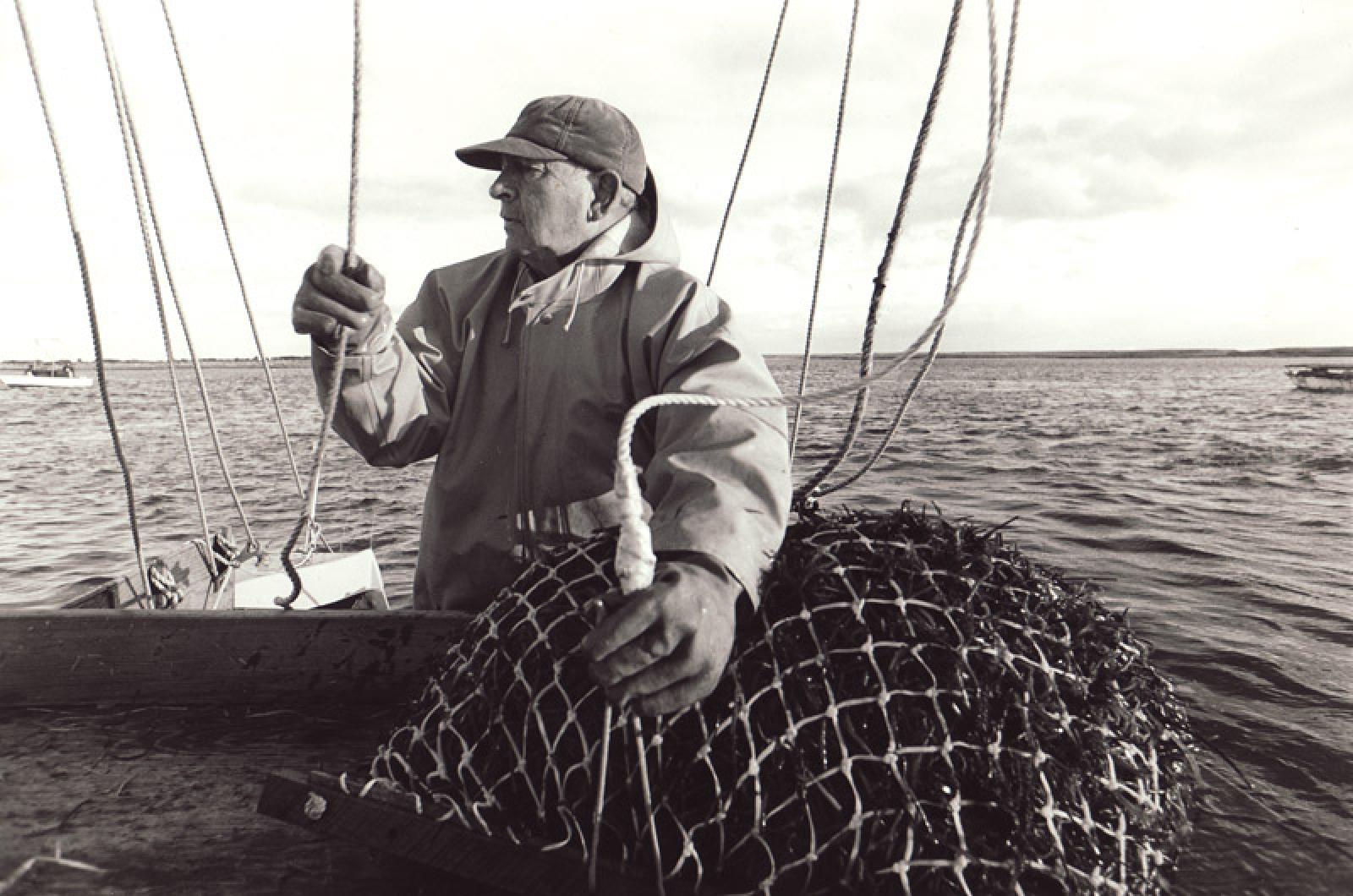His great-uncle was Ellsworth Luce West, the last whaling master on Martha’s Vineyard, and Nelson Smith of Edgartown knew him well. It occurs to me that I won’t ever have the chance to write a topic sentence like that again. But it says something about the residual nature of Island history that up to the end of last week, it was still possible to write it of a man living on the Vineyard 17 years into the 21st century.
Captain Smith died April 5 at the age of 92, and with him vanishes another of those expert old Vineyard storytellers, the sort whose tales rolled out like a memory in a Eugene O’Neill play. There was drama in every yarn he told. His voice was low and slow, and the narrative rumbled along free of hesitations, interjections and caesuras. The accent was pure Edgartown, and the way he said a few words, like “Choppy” for Chappy and “Nobskee” for Nobska, must have been rooted in the way he heard them said as a boy, nearly a century ago.
Interviewing him, you sometimes thought he was telling you a story he had told a hundred times before, so practiced did it sound, but you could also lead him off in any direction and the narrative mastery was always there. He was descended from the first colonial settlers on the Vineyard and reckoned that he was related to just about every old English family left here. What you soon realized was that on the Island, Nelson Smith knew nearly everything there was to know going as far back as living memory allowed. And even farther back than that when he was discussing a part of his family history that seemed to mean a great deal to him.
He always did you the enormous honor of giving you the inside dope on all the Island heroes he had known, plus all the strivers, drunks, harlots, connivers, pretenders, simpletons and victims of cruel fate. And then, if you were a journalist, he’d also deal you the powerful blow of adding that what he’d just told you “wasn’t for the paper.” I have heard that he was quietly but deeply generous to friends and fellow veterans, and I am also told that one twilight evening, he was seen steering the ferry from Edgartown to Chappaquiddick with one hand on the wheel while with the other he also head-locked and pummeled a lone passenger who had somehow given offense. I could often see both those men sitting across from me in the dim light above his kitchen table.
The places he went, the dangers he risked, the things he achieved (“Bob Morgan and I are probably the only guys on Martha’s Vineyard right now alive who have caught swordfish on rod and reel”) — you could see all that in him too. His body was bent, but his face was roundish and surprisingly smooth for a fisherman well into his late 80s. Last time I talked with him, a year ago on a ferry headed home, he still had an eye that could go through you like a laser if he thought you had a fact mixed up or an idea wrong. If I remember this right, he was missing the last part of a finger, maybe the index, and if true, I’m sorry I didn’t hear from him how that happened. Couldn’t have been pleasant.
That sword-fishing quote comes from More Vineyard Voices, the second volume of personal Island histories compiled over the last couple of generations by Linsey Lee, the oral historian of the Martha’s Vineyard Museum. When an old-timer like Nelson goes, I always scamper to my Vineyard bookshelf to make sure that Linsey got him or her on tape before it was too late. Thank goodness she got Nelson. He’s gone now, but the Island he talked about in those dramatically faultless monologues going back to 1642 or thereabouts lives on in those oral histories of Linsey’s. For Nelson’s sake — and yours — I wouldn’t pass one by if I saw it on a bookshelf.




Comments (12)
Comments
Comment policy »